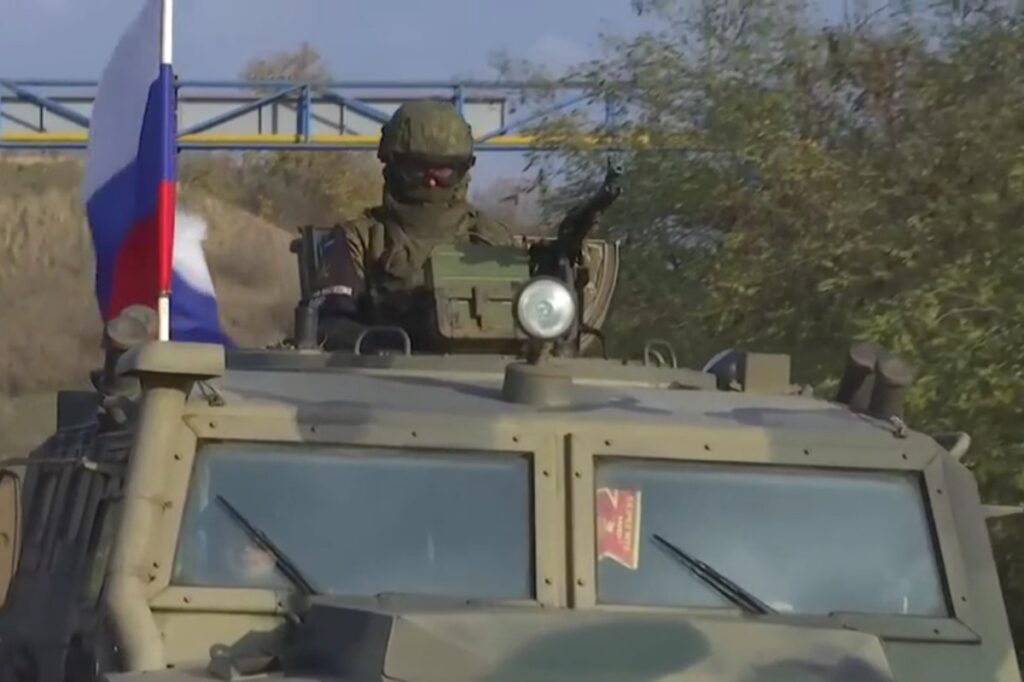The Russian Ministry of Defence has accused Azerbaijani forces of violating the ceasefire in Nagorno-Karabakh as tensions between Armenia and Azerbaijan continue to rise.
‘Over the past 24 hours, one ceasefire violation has been recorded. On 11 August 2021, at 07:29 and 07:58, the Azerbaijani armed forces carried out two strikes using strike-type quadcopters [drones] on a position of the armed formations of Nagorno-Karabakh’, the ministry said in a statement on Thursday.
Since the end of the Second Nagorno-Karabakh War brought the deployment of Russian peacekeepers to the region, clashes have continued to take between Armenian and Azerbaijani forces. However, Thursday’s statement was the first time Russian authorities have explicitly blamed one side for violating the ceasefire.
Wednesday’s clashes were previously reported by the Nagorno-Karabakh Defence Army, which said that combat UAVs were used by Azerbaijan forces.
On Thursday, the Defence Army reported that Azerbaijani troops had attempted to cross the line of contact in the east of Nagorno-Karabakh.
Azerbaijani authorities have responded by accusing Armenia of deploying more troops to Nagorno-Karabakh and of ‘committing a provocation’.
Since the end of the war, isolated clashes have continued to take place around Nagorno-Karabakh and along much of the Armenian–Azerbaijani border.
According to Armenia, since late May several hundred Azerbaijani soldiers have advanced their positions into Armenia proper. The clashes have resulted in casualties from both sides and at least six Armenian soldiers have been taken captive, with three remaining missing.
Armenian officials have expressed increasing frustration with a perceived lack of response to the clashes from Russia and the Russia-led Collective Security Treaty Organisation (CSTO), of which they are a member.
By contrast, the European Parliament, the United States, and France all called for Azerbaijan to withdraw its troops.
During a visit to Armenia on 10 August, the General Secretary of the CSTO, Stanislav Zas, did concede that the clashes along the border were a ‘threat to Armenia’ and to other CSTO member countries. He added that the CSTO hoped for a non-violent solution to the issue.
Armenian Defence Minister Arshak Karapetyan responded that Armenia was in favour of peace, but that ‘our patience is not inexhaustible either’.
For ease of reading, we choose not to use qualifiers such as ‘de facto’, ‘unrecognised’, or ‘partially recognised’ when discussing institutions or political positions within Abkhazia, Nagorno-Karabakh, and South Ossetia. This does not imply a position on their status.




 13 August 2021
13 August 2021



